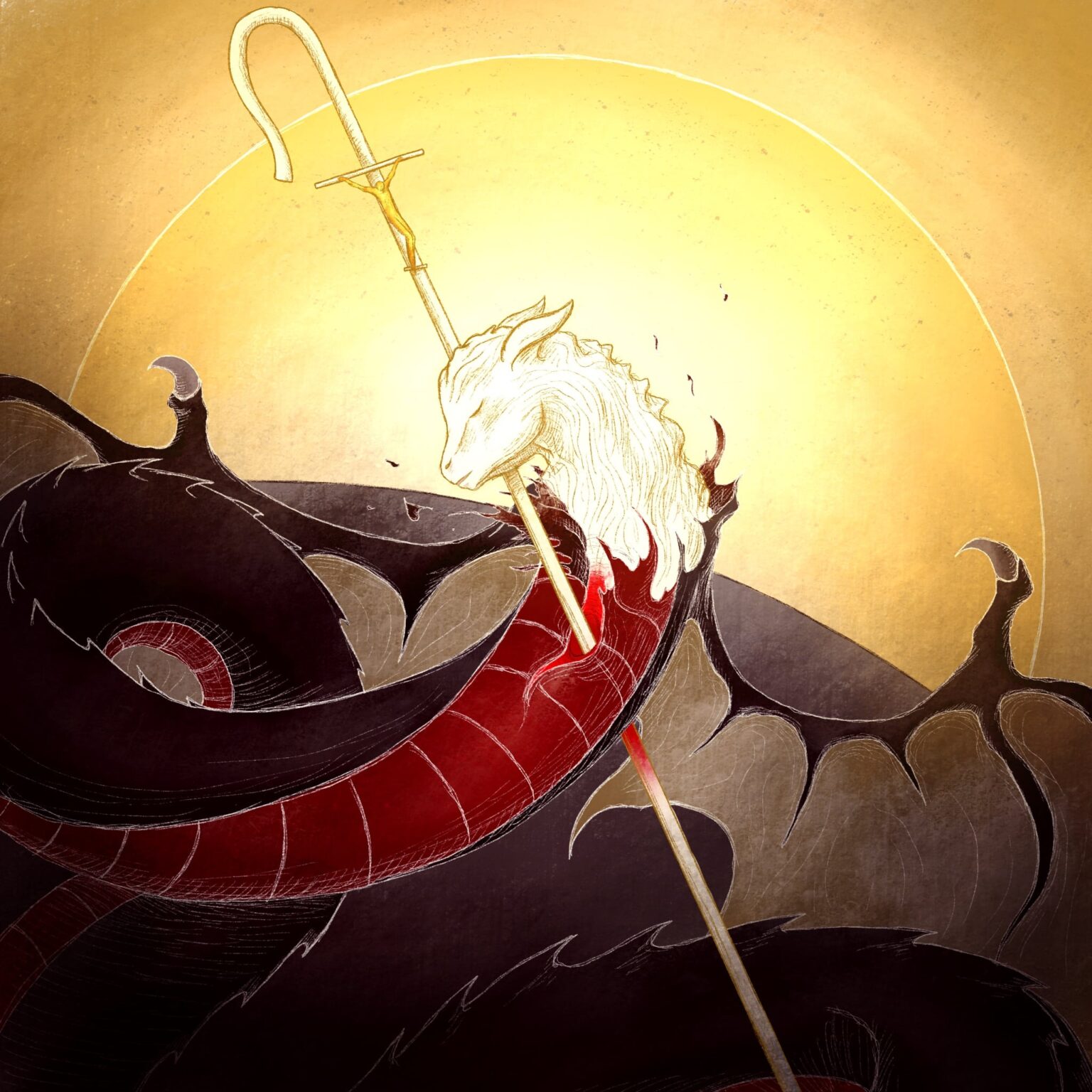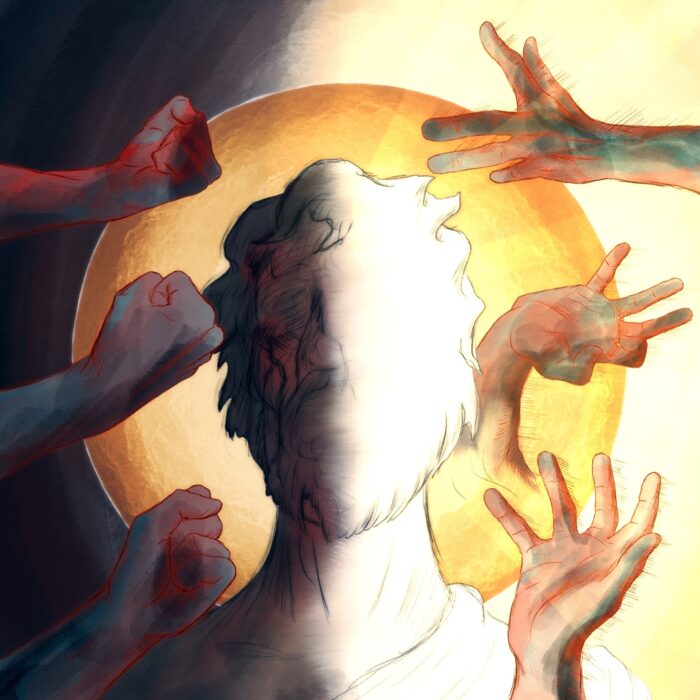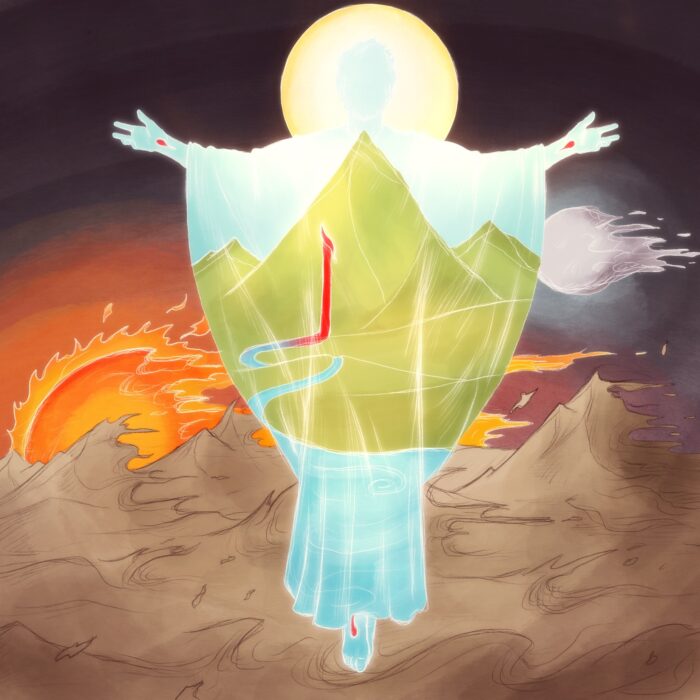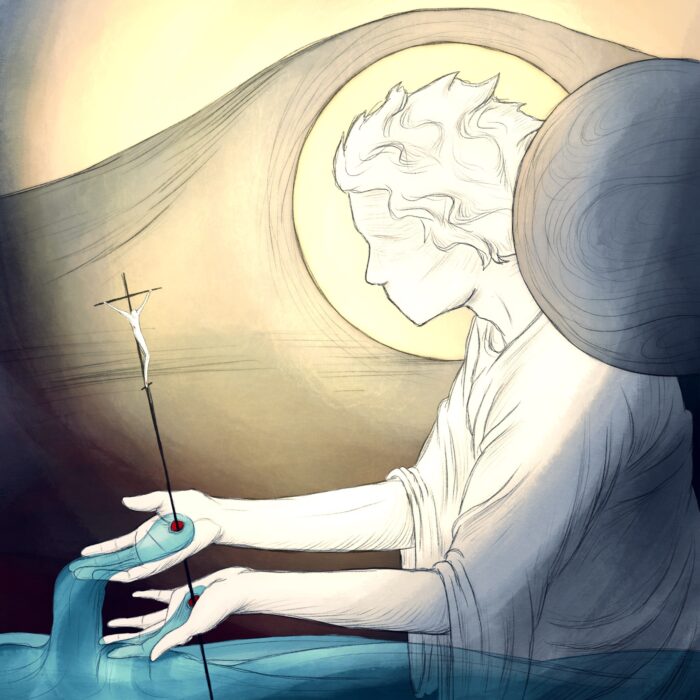Isaiah 19:21-22, 25, “And YHWH will make Himself known to the Egyptians, and the Egyptians will know YHWH in that day…And YHWH will strike Egypt, striking and healing, and they will return to YHWH, and He will listen to their pleas for mercy and heal them… ‘Blessed be Egypt, my people, and Assyria, the work of my hands, and Israel, my inheritance.’”
These are astoundingly beautiful, expectation-upending verses! To the biblically literate ear, the idea of Egypt and Assyria being called the people of YHWH and the work of His hands in conjunction with Israel is staggering. These two are the quintessential enemies of YHWH and His people, they are the “bad guys,” they are the “hitlers” and the “ISIS” of the OT worldview. And yet here, beyond all imagination or expectation, they are envisioned as being finally gathered in, finally made the people of YHWH, finally caused to know the Lord! Glory to God for such a expectation-transgressing hope!
Now, a few things to note here.
First, see that Egypt and Assyria (who, by occupying different extremes of Israel’s history—Egypt as their first enemy, Assyria as their final enemy at the time of Isaiah’s composition—can represent the totality of the God-opposing world, the “nations”) see that Egypt and Assyria are gathered in as God’s people and yet not swallowed up into “Israel.” That is unheard of. During the time of Isaiah’s writing, ISRAEL, is the covenant people of God. If one hopes to be gathered in to that covenant, they must become part of Israel, they must submit to the Mosaic Law, etc. But here we see the nations gathered in to a single body of worshippers who yet maintain something of their ethnic and cultural distinctions. But how can the nations be gathered in to God’s people without becoming Israelites? This passage anticipates the new covenant, the covenant in Christ, the covenant in which all people are united under one Shepherd as one flock before God (John 10:16). Only in Christ—the True Vine, the Olive Tree—can all peoples be grafted in to a single body before the Lord. That is what Isaiah glimpses in these verses.
Secondly, see how the Lord gathers the nations in. It is by tearing them down to the dust. He strips the proud trees of the peoples bare, leaving them powerless and exposed on the mountains (18:5-6), He strikes the heart of their self confidence (imaged in the drying up of the Nile, which was the lifeblood of Egypt, 19:5-10), He makes them like drunken men, staggering in their own vomit (19:14). But this tearing is so that He might bind up, this striking is so that He might heal (Hosea 6:1, Isaiah 19:22). And this is really the pattern of the Lord in all of His saving work. He first disintegrates the self-saving strength of the one He intends to save so that—from their shattered pieces—He might rebuild them to His praise and their joy. He kills, but He kills that He might make alive. Is this not how the gospel itself functions?
The Word of the Cross is first a word of condemnation, it is first a word of death, it is first a word that strips us of all self-assured confidences. And only once it has laid us in this grave do we hear the voice of the Son of God singing over us from the Tree and live (John 5:25, Zeph.3:16). Before we can lay hold of the crucified Christ as God for us, we must first recognize that condemned sinner on the cross as we ourselves. Only when I have been made to see the one damned on the cross as MYSELF, am I able to see—in that man damned for and as me—the glory and image of my God and so live. Yes….in the gospel, by the Spirit, God kills us—which is to say, makes us alive to the reality of our spiritual death—so that He might truly raise us to Himself with Christ.
And finally, consider what hope is in these words! Again, Egypt and Assyria are the bad guys. These are among the worst of the worst, the go-to villains in the biblical world. And yet here, beyond even the most generous imaginations, they are included among those who know and love YHWH! They are called His people and the work of His hands! What are we to take from that? At the very least this sort of passage reminds us that God’s designs are more gracious than we dare imagine. Especially as those who have seen Christ die for us while we were yet enemies (Rom.5:10ff), as those who were once far off and without God but have now been brought near by the blood of the Beloved (Eph.2:13), as those over whom Christ’s “Father forgive them” has been spoke, we especially ought to hold out great hope for all peoples and people. The gospel teaches us that anyone is a potential beloved brother or sister….anyone. No one is beyond the reach of God’s nail-pierced hands.
And so, we ought to—in love—“hope all things” (1 Cor. 13:7). That is to say, we ought not box God in with what the end of all things will bring. We ought not box Him in by saying that these ones or these ones will certainly be damned, nor ought we to box Him in by saying no one will be damned and all will be saved. Rather, we ought to hold fast to the name of God declared in the Son as he bears divine wrath (and so declares its reality) in our place (and so reveals His love) and trust that the final harmony of all things will sing this Name with a beauty that we cannot now—even in our best moments—imagine or comprehend.
Hallowed be His Name.




